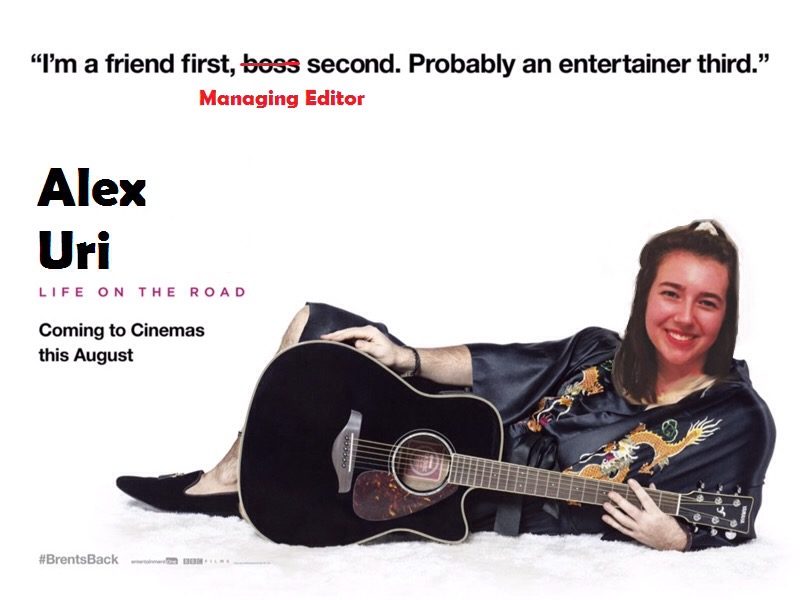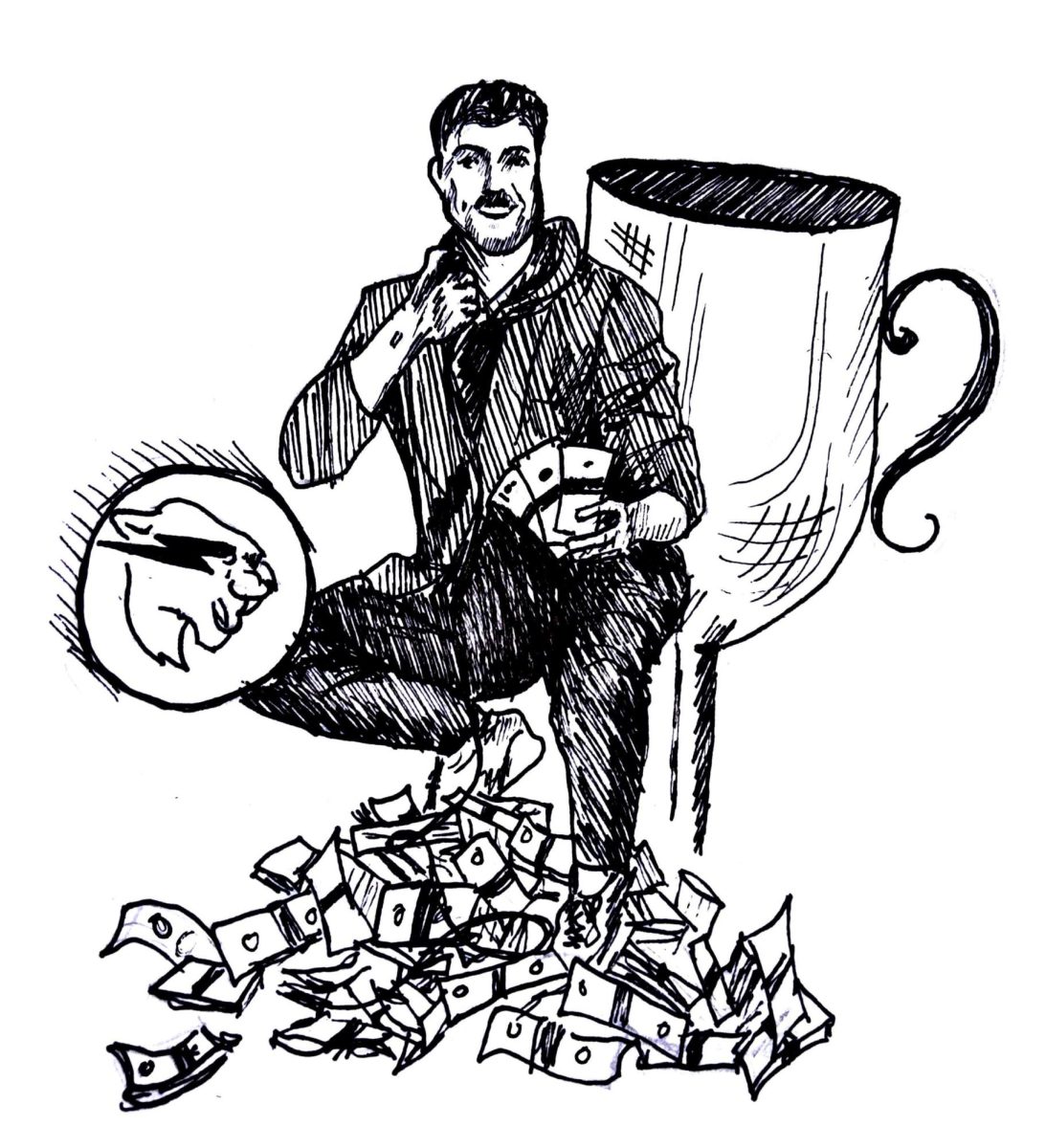Nearly a decade and a half after the airing of the original (British) “The Office,” Ricky Gervais returns. He reprises his role as David Brent in “David Brent: Life on the Road”. The movie is available on Netflix, departing the show’s previous format of running on television. Fifteen years after his appearance in the documentary, David now works as a sales rep for a bathroom supply firm. Disillusioned with his current life and career, he is desperate to regain the fame that came with what he is convinced was a wildly successful series.
He decides to take an unpaid leave from work, borrow money from his pension, and go on tour with a handful of bandmembers who for all intents and purposes want nothing to do with Brent, all in an attempt to get a record deal and live out his lifelong dream of becoming a famous musician. What follows is a hilarious yet at its core quite sad look at a man who desperately wants to be liked, but whose actions repeatedly result in him putting his foot in his mouth and making a fool out of himself.
One must keep in mind that this film, and the BBC series that preceded it, is terribly British. Understand that I mean this in both the best and worst ways. British comedian Stephen Fry, when once asked about the differences in comedy between America and England, explained that “we want to play the failure “¦ all the great British comic heroes are people who want life to be better and on whom life craps on from a great height”. David Brent truly believes that life owes him a career as a Rock Star. Tragically, he is the only person in his life who remotely sees this as a possible reality. I would say a good third of the film is devoted to Brent performing a handful of the some of the most bizarrely terrible songs I’ve heard in awhile. A few standouts include “Equality Street,” “Native American,” and “Please Don’t Make Fun of the Disableds” (note: the last song is not a typo, here we have David imploring his listeners to stop ridiculing “disableds” as he calls them). A sample: “Ohh please don’t make fun of the disableds “¦ [t]here’s nothing funny about those…Whether mental in the head or mental in the legs”. After a rendition of David’s “tribute” to Native American people “” he affectionately describes them to “[s]oar like an eagle, sit like a pelican” “” one of David’s bandmates sums up Gervais’s character. He says: “I don’t think there’s any real racism on David’s part. I just think he doesn’t quite get it, does he?”
This is the essence of Brent’s stupidity. There’s no malice or ill will in David Brent, rather has a painful lack of self-awareness coupled with a constant need to be loved by everyone around him. The brilliance of Gervais’ performance is that as the film progresses, the viewer can see the clown makeup running off, so to speak.
Each time Brent makes a joke that falls flat or gets humiliated, the character’s smile becomes more forced and the laughter more nervous.
The film is not perfect. The viewer is meant to believe that the film is a low budgeted documentary of sorts. However, the movie is dominated by clearly high budget aerial and steadicam shots throughout the entire film. If the filmmakers set out to paint a realistic looking mockumentary, they seriously would have benefited by trying to make the movie look lower budget.
The joke here is that Gervais’ character is a about as “famous” as it’s possible to be when one was once the star of a docu-series that followed the middle manager of a small paper supply company over fifteen years ago. Why , then does the film look so polished?
Overall, this is a very dark comedy that will make you laugh through all of the cringes. People who missed Gervais’s loveable-yet-horrible character on the British Office will still enjoy his antics fifteen years later. The performances are fantastic throughout and the film stays alive, never getting too caught up in itself while trying to be funny.






